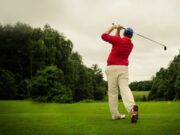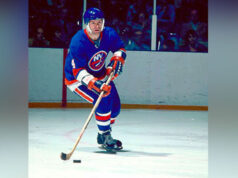TO: questions@psychedonline.org
FROM: XXXXXX@sympatico.ca
SUBJECT: Rubber Legs
DATE: Tue, 31 Dec 2002 12:04:54
Dear Psyched:
I am an Atom “AA” hockey player and I play left wing. I can normally skate very fast. However, when my team is involved in very important playoff games, my legs feel rubbery and I can’t achieve my usual speeds. What can I do to get rid of this feeling and get my speed back?
Signed,
Rubber Legs
TO: XXXXXX@sympatico.ca
FROM: questions@psychedonline.org
SUBJECT: Re: Rubber Legs
DATE: Thu, 9 Jan 2003 10:51:50 EST
Dear Rubber Legs:
I read your email and wanted to suggest some ideas to help you.
You may have already decided that “rubber legs” comes from anxiety. Try some of the following:
- Here and Now exercises.
- Breathing – When anxious our breathing becomes quick and short. It only goes to our chest. You must breath deeply into your abdomine. Put your hand on your stomach and breathe into it. Do this repeatedly when practicing, before the start of the game and during it. Follow the breath with your consciousness. Our power comes from our breathing. From our stomach.
- Try to keep your mind clear of the outcome of the game. Stay in the moment. Everytime your mind wonders into the future, bring yourself back to what is going on now.
- It may sound weird, but if you can make sounds (even if it is just in your mind) like raaaaaaaa and hold the sound as long as possible, it will give you strength.
- Creative Visualization: Pick an image that is the opposite of rubber legs. Something strong like steel or if you want flexibility a piston of a car. Whatever works for you. Imagine in your minds eye this material as what your legs are made of. Watch it pumping away. Tighten your leg muscles and release.
If you look back at past editions of Psyched, you will find articles on these subjects. There is also an article on anxiety that might be helpful.
Good luck,
Paul Schienberg, Ph.D.













